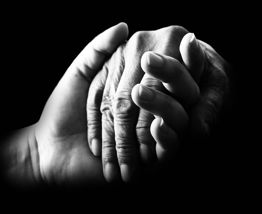Enrol in an online course today for flexible, self-paced learning—no fixed schedule required. Plus, enjoy lifetime access to course materials for convenient revisiting.
Pillars of Strength 5/8: Mindbody

Grief is embodied. It sits in the body silently screaming. People often put their hand on their heart and say, “I’m heartbroken”, or on their chest as if there is a 10 ton brick sitting there, crushing the life out of them. It means the pain of grief is often felt like fear, and tips our bodily system into a heightened state of hyper vigilance.
We know from neuroscience that every thought that we have has a physiological component, which is felt in our body. The mind and the body are interconnected – we can refer to the mindbody, a single interweaving unit. Neuroscientists often talk about how “the body remembers” and “the body holds the score”. Experiences are held in our body and influence both what we think and the decisions we take. Every thought we have influences how we feel, and every feeling can trigger a thought.
We are primitively wired to have a negative bias: to look for danger, which can turn on the fight/flight/freeze system. So when we are grieving, we need to work particularly hard to counterbalance that. I am not saying we can flick a switch and be optimistic. But as therapists we can factor in that bias and try to bring in more of a ‘yes’ bias. The most helpful way to do this is to help our client wind their system down, to rebalance it. There are examples of how to do this further down.
The mindbody is a system of interweaving connections, and profoundly influences choices and behaviours as well as our mood. Eighty per cent of decision-making is influenced by emotion, and our previous experience. Impulse control – the ability to delay gratification or choose what to say and when – comes under particular pressure when we are grieving. If clients don’t find ways of calibrating their extreme feelings, they may use bad habits like drugs and alcohol to anaesthetize them, or vent them on others.
Helping grieving clients regulate their mindbody
We can help our clients establish a regime that helps regulate their body, which then helps support them emotionally. The more habitual it is the more effective it is. It needs to be a combination of:
- Cardiovascular exercise such as running or cycling, which raises the heart rate and helps ease the feeling of fear. It reduces the stress levels and releases the feel-good calming neurotransmitter, dopamine.
- A relaxation / meditation exercise, which helps manage anxiety and wind the system down. It tells us we are out of danger and in a safe place.
- Eating and drinking in a balanced, healthy way – without great spikes of sugar, coffee and alcohol that send the body peaking and crashing.
Find out more about Julia’s work and writing at https://juliasamuel.co.uk/


















